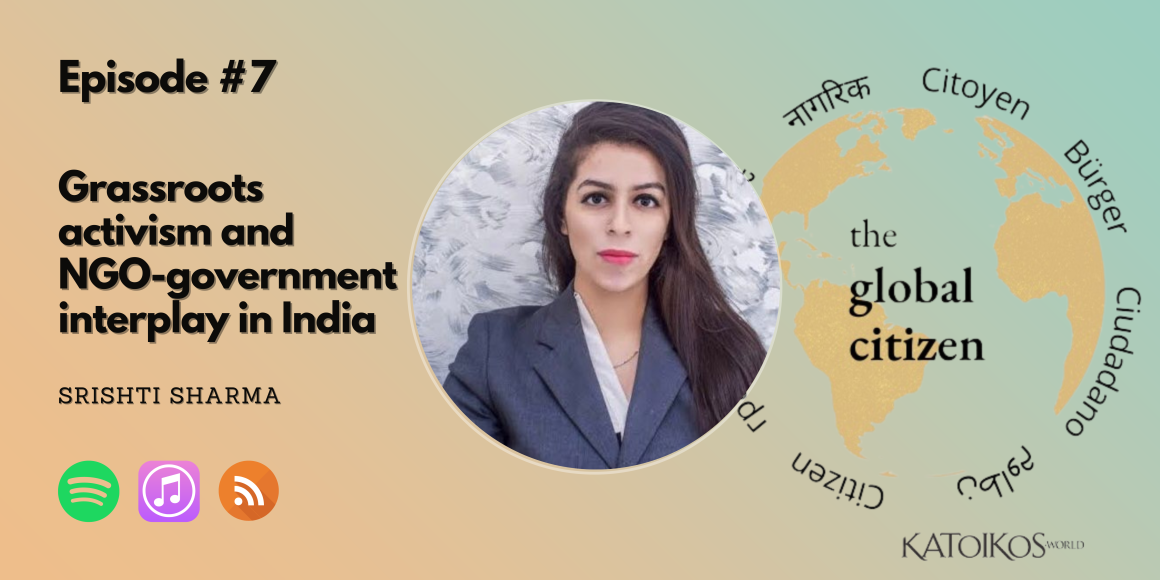Policy is not (or better, should not be) a one-way process; effective policymaking requires feedback and adjustment so that the ground reality actually corresponds to the policymakers’ intentions.
Unfortunately, the more layered and complex a governance system is, the harder it gets to make sure that policy is being implemented correctly and addresses the issues it set out to fulfill. This leads to laws not achieving their purpose, and problematic situations remaining as they are, even after being “mended” by legal means.
Often, grassroots organizations and NGOs are implicitly tasked with picking up the slack, as governmental measures fall short of the task. On this episode of the Global Citizen podcast, I had the pleasure of interviewing Srishti Sharma, a serial entrepreneur and social activist from India. Srishti has been extremely active not only in the world of business but also in social activism through start-ups and non-profit organizations that aim to tackle problems ranging from protecting women and compromised workers to getting children back into school.
Our conversation revolved around her own experience in setting up and running these social projects, as well as what role the government plays in supporting (or obstructing!) the work of such initiatives. I was super happy to have her on, and I felt like I left the conversation much more knowledgeable about the interplay between grassroots organizations and the government, especially in the multi-layered and complex environment of India. Tune in to hear all about it!



